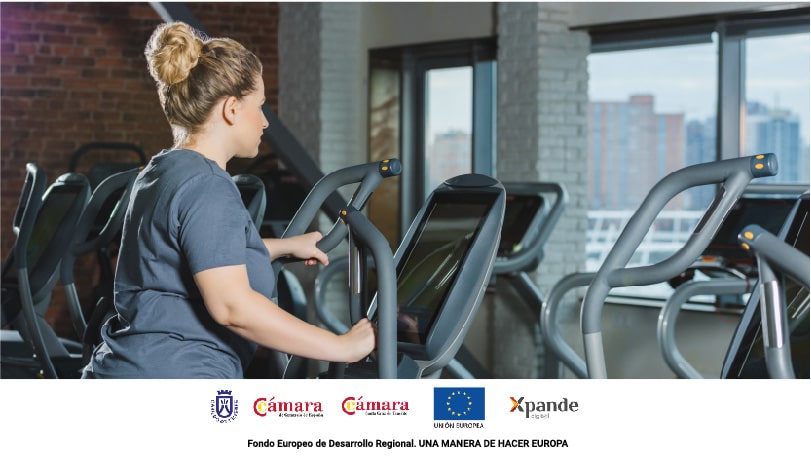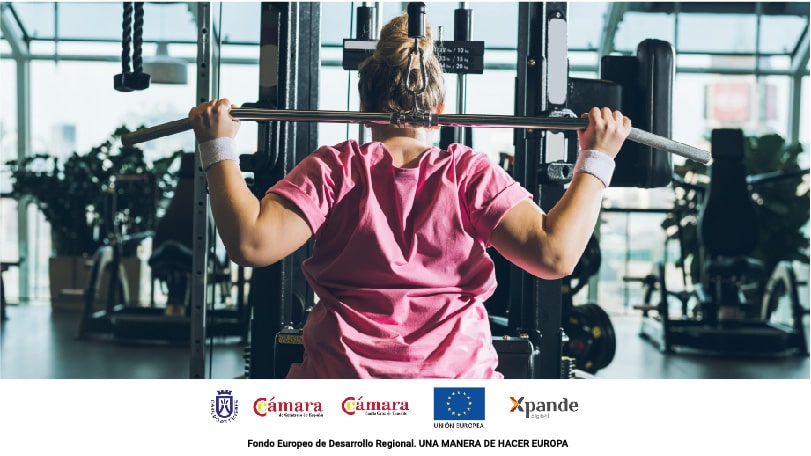Over the years, research in the field of physical activity and sport has been in constant growth. However, it is difficult to eradicate (socially) the myths that have always existed around strength training. To this day, many people still think that strength training multiplies body volume, decreases flexibility, damages joints, makes women lose femininity or that, when you stop training strength, the muscle becomes fat. All this is nothing more than myths, so we will deny those related to strength training and obesity to, once and for all, give light to these mistakes.
"Cardio is the best way to lose weight"
We start with the myth of myths. When has not a friend or even a coach commented that what you need is to run more and release those weights?
This belief that performing cardiovascular training is the best thing has caused the population to move away from gyms. This is undoubtedly the most repeated myth and has to be given greater visibility so that the general population stops believing this mistake. We must always remember that cardiovascular training is a good tool, but that is it: one more tool and, therefore, not the only one. In this way, we do not have to close ourselves, it is the combination of ways that will make it a training of higher quality, always without forgetting a good diet.
A study from Quincy University in Ilinois, worked on the effects of strength training on health and concluded that, if our goal is fat loss, strength training is very effective and can become even more beneficial than just cardio. Although, if you do a combination of aerobic exercises with force, it would be even more interesting. Usually, the extremes are bad and combining both is the best option. It should also be remembered that high-intensity cardio exercises have many benefits in fat loss, but for people with obesity they can end up being harmful, causing injuries to their knees and joints.
"If you train force, you will be very rigid and have no flexibility"
This myth has a clear origin, but very unrealistic. It comes from the belief that, if strength is made, the person will be the next Arnold Schwarzenegger... and things are not that easy.
Leaving out the part that to be a bodybuilder requires generic characteristics and a very hard and long training, the truth is that the growth is not so fast. In addition, if the technique is executed correctly, with the right weight and with a full range of motion, there is an improvement in flexibility.
So when can flexibility be lost? It is likely to happen if they do a bad exercise practice, such as carrying weight above the limit, which would result in not being able to perform a full range of motion, leading to muscle shortening. If this were not enough, the proof are the elite athletes (whether from gymnastics or other Olympic areas) who have very muscular bodies and, even so, have a good muscle quality in both flexibility and power. Either way, active stretching before and during exercise, in addition to static stretching after, will help maintain and develop better flexibility
"If you get in the gym, you will stop looking like a woman."

Improves the posture.
Increases the heat of the stomach.
Strengthens musculature and tones it..
Prevents injuries.
"Strength training is harmful"
Getting hurt in any area of life is possible, since we set foot in the street we take the risk.
The question is, is the risk in gyms when training strength higher than the one of cardio?
The short answer would be no, but the long answer is that if the exercise is developed following a good technique, taking an adequate weight and with professionals supporting customers (as we have already explained), that risk is reduced.
Besides, it also helps to prevent injuries in everyday life, whether from a fall or any other accident. We will have stronger joints and muscles and, in case of injury, recovery is faster when you have quality muscle fibers and well-cared tendons, always accompanied by a good diet and hydration.
In the end, to avoid any type of injury when training strength exercises it is necessary to know the technique of the exercises to be carried out, to make a warm-up focused on them, to adapt the weight to use and, of course, to have an instructor who gives appropriate advice.
If someone knows about advising, those are our professionals from AreaZero: not only are we clear that all these are only myths, but we also train professionals. If you are interested, contact us!

